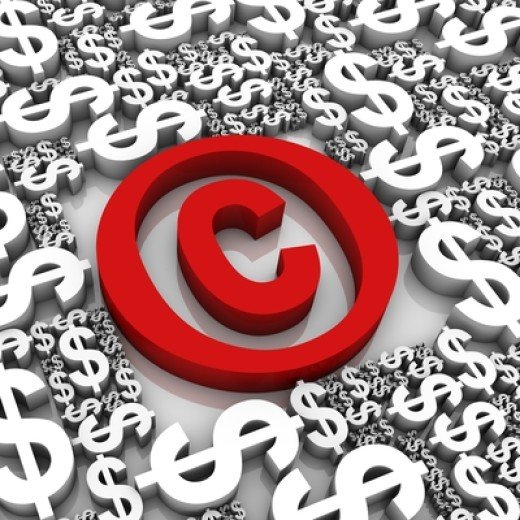Top 5 Tips for Negotiating by Kelley Way
Welcome to our regular column on literary law. Today we focus on negotiations from our monthly guest columnist, Kelley Way, a lawyer specializing in literary law. If you have general questions for Kelley on negotiating or other aspects of literary law, be sure to comment below. Thanks!
PS. A list of books on literary law can be found here.
PPS. For more on copyright, visit the U.S. Copyright Office.
And now for a bit of necessary legalese: Please note that this article does not constitute legal advice, and that an attorney-client relationship is not formed by reading the article or by commenting thereon.
***
Negotiation is a part of life. We haggle at farmers’ markets, we bargain with our significant others, and of course, we make deals in the business world. Knowing the rules of negotiation is helpful in all of these situations, but most of all when making business deals. Here are the top 5 things you should know for an official negotiation:
- Come prepared. This is by far the most important rule of negotiation, and it will have a dramatic effect on the outcome. Before you even sit down at the negotiation table, you should know:
- Your Best Alternative To Negotiated Agreement (BATNA). For instance, if you were meeting with a publisher to sign a contract on your book, you would want to have another offer pending with another publisher, or to at least be talking with another publisher. If you have a good BATNA, don’t hesitate to use it, because it can be very powerful. If you don’t have one, though, and can’t get one before the negotiation, don’t sweat it, and under no circumstances lie about your BATNA. That sort of thing has a nasty habit of biting you where it hurts, usually at the worst possible time. Besides, you probably want to work with this person, and how good a relationship can you have if you lie to him at the outset?
- Your Reservation Point. This is the point where the deal is no longer worthwhile and you’d be better off to just walk away. This can be decided from your BATNA, your finances, your personal preferences, or a whole host of other things. The point here is that you have limits to what you will accept on this deal. (And you never share this with the other person, because they will use it against you)
- Your target. This is your best possible outcome, what will happen if you get everything you want out of this deal. Bear in mind that it’s unlikely you will actually get your target, but you want something to aim for when you’re negotiating.
- Your strengths. Know what cards you’re holding, and how you can use them to your advantage. For example, when negotiating with a publisher, you can use awards your book has won or the popularity of the genre to argue that your book is worth more than what he’s offering.
- Your weaknesses. Know what disadvantages you have, and how they can be used against you. For example, you’ve never had a book published, or this is outside of the genre your normally write in. Be prepared for the other party to bring them up, and have counterarguments that diminish the weakness or, better yet, that turn the weakness into a strength. Going back to the publishing example, being unpublished is not such a big deal if the manuscript has won multiple awards, or if you have another strength that makes it more likely to sell.
- The other party’s BATNA, Reservation Point, target, strengths and weaknesses. This is more along the lines of educated guesswork, but it pays to have a good idea going in what the other party wants.
I know, that’s a lot of homework I just assigned, but believe me when I say it pays off.
- If possible, make the opening offer. More often than not, the first offer sets an anchor for the rest of the negotiation, and the final number is not too far from it. Therefore, if you make the opening offer, then the final number will be closer to your target than the other person’s. If they make the opening offer, counter quickly with your number, so that the negotiation centers around it instead. Make sure that the opening offer asks for more than your target, but is still within reasonable limits. You may need to do some research to know what a reasonable opening offer would be. In cases where you have no idea what’s reasonable, and no way to find out, it’s better to let the other party open.
2. Allow room for concessions. As I said above, you want the opening offer to ask for more than you’re actually aiming for. This gives you room to negotiate, so you can make concessions that bring you closer to your target. Negotiation is all about concessions: one side makes an offer in its favor, the other side counters, and then they both make small compromises until they agree on a number somewhere in the middle. There are 2 keys to making concessions:
- Start with big concessions, and make them smaller as you get nearer to your target or reservation point. This signals to the other party that the negotiation is winding down.
- Never give free concessions. This is a trade-off: one side makes a concession, and the other side reciprocates. If you give a concession away without receiving one in return, you’ve wasted it and won’t get as good an outcome. And yes, you can remind the other party that it’s their turn to pay up.
3. Share your priorities. Most negotiations, particularly in business, involve multiple points to bargain around. For example, with a publishing contract, you’re negotiating an advance, royalty payments, your participation in the marketing, etc. Know what’s more important to you, and let the other party know that you have a preference for certain things over others: for instance, you’d be willing to have a smaller advance in exchange for higher royalties.
4. Last but not least, talk and share information before talking numbers. Don’t spit out your opening offer before you’ve even sat down. Expert negotiators always talk generalities before getting down to the specifics, because it helps the parties gauge each other’s priorities and sets the tone for the actual negotiation.
Hopefully I haven’t made your head spin. Professional negotiations take some work, which is why many people simply rely on professional negotiators, like agents or lawyers. Still, with these tips and a little practice at your local farmer’s market, you can negotiate like a pro in no time.
More resources about negotiating:
- Getting to Yes: Negotiating Agreement Without Giving In by Roger Fisher, William L. Ury, and Bruce Patton: http://amzn.to/TdnM6P
- How To Win Friends and Influence People by Dale Carnegie: http://amzn.to/SAxzGu
- Influence: The Psychology of Persuasion (Collins Business Essentials) by Robert B. Cialdini: http://amzn.to/TdxTbF
***
ABOUT THE AUTHOR
 Kelley Way was born and raised in Walnut Creek, California. She graduated from UC Davis with a B.A. in English, followed by a Juris Doctorate. Kelley is a member of the California Bar, and an aspiring writer of young adult fantasy novels. She can be contacted at KelleyAWay@gmail.com. You can contact via your comments below or email her directly to set up a consultation.
Kelley Way was born and raised in Walnut Creek, California. She graduated from UC Davis with a B.A. in English, followed by a Juris Doctorate. Kelley is a member of the California Bar, and an aspiring writer of young adult fantasy novels. She can be contacted at KelleyAWay@gmail.com. You can contact via your comments below or email her directly to set up a consultation.







